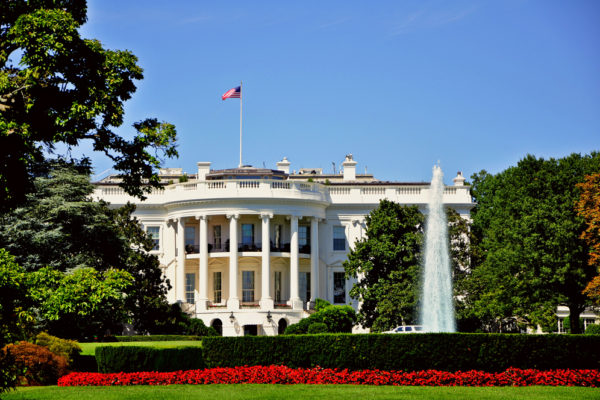WashU Expert: ACA as difficult to repeal as it was to pass
Despite promises made before Donald Trump’s inauguration, the Affordable Care Act, otherwise known as Obamacare, will be as difficult to outright repeal as it was to pass, says a health economist at Washington University in St. Louis.
Moving forward: ACA provides opportunity to improve overall health system
The survival of the Affordable Care Act in the Supreme Court presents a monumental moment to improve the U.S. health care system, says Elizabeth Sepper, JD, health law expert and associate professor of law at Washington University in St. Louis. “It is a uniquely American crisis that 50 million Americans don’t have health insurance and another 29 million are underinsured, meaning getting sick would ruin them financially even though they’ve been paying for insurance,” she says.
Constitutional law expert and former SCOTUS clerk comments on ACA decision
“I expected the Court to uphold the Affordable Care Act (ACA), however, two elements of this decision are very surprising: the fact that the mandate survives under the taxing power while failing under the Commerce Clause and Necessary and Proper Clause, and the fact that Chief Justice Roberts was in the majority without Justice Kennedy,” says Gregory Magarian, JD, constitutional law expert and professor of law at Washington University in St. Louis. “Roberts’ vote looks to me, as a first impression, like a brilliant piece of judicial strategizing.” Magarian is a former U.S. Supreme Court clerk
for Justice John Paul Stevens.
Health economist discusses how SCOTUS decision impacts ACA implementation
The Supreme Court’s decision today means the implementation of the Affordable Care Act can go forward, thus improving the delivery and affordability of medical care, says Timothy McBride, PhD, health economist and associate dean for public health at the Brown School at Washington University in St. Louis.
Constitutional law expert and health economist available to discuss SCOTUS health-care decision
Gregory P. Magarian, JD, professor of law, and Timothy D. McBride, PhD, professor of public health, both at Washington University in St. Louis, are available for expert commentary on the Supreme Court’s Affordable Care Act decision.
Lack of competition could hike costs in health insurance exchanges
A new study suggests that health insurance exchanges, a key provision of the Affordable Care Act passed in 2010, may need to be monitored by policymakers to make sure there is sufficient competition between private insurance plans. In the study, published in Health Affairs, Timothy McBride, PhD, professor and associate dean for public health at the Brown School at Washington University in St. Louis, examined the insurance premiums, availability of plans and enrollment levels under the Federal Employees Health Benefits Program (FEHBP). “From its inception, the health reform legislation used the structure of the FEHBP to guide the design of these exchanges,” McBride says.
Reactions to POTUS Supreme Court comments ‘reflect historical ignorance’
The Supreme Court’s upcoming decision on the constitutionality of the Affordable Care act has prompted some interesting and provocative issues about – and between – the president and the judicial branch, says Gregory P. Magarian, JD, professor of law at Washington University in St. Louis and former clerk for retired Supreme Court Justice John Paul Stevens. “These alarmed reactions reflect historical ignorance,” he says.
Supreme Court’s health-care decision to shape presidential campaign, says WUSTL health economist
The Supreme Court’s ruling on the Affordable Care Act (ACA) will have a major impact on the presidential campaign, says Timothy D. McBride, PhD, health economist and associate dean for public health at the Brown School at Washington University in St. Louis. “The health reform legislation was the signature piece of social legislation passed by President (Barack) Obama’s administration in his first term,” he says. How the court’s decision will influence the election could be quite complex, says McBride. The court is hearing arguments in the case March 26-28
Supreme Court’s Affordable Care Act decision will have massive, immediate impact
The Supreme Court will hear several states’ legal challenges to the Affordable Care Act, ensuring that the court — in late June 2012 — will deliver a momentous statement about the ever-contentious constitutional balance between federal and state power. “The key element of the states’ lawsuits targets the act’s requirement that everyone in the country must purchase commercial health insurance,” says constitutional law expert Gregory P. Magarian, JD, professor of law at Washington University in St. Louis.
Updated Handbook of Health Social Work reflects changes in health care
Increased complexity in health care demands a greater body of knowledge for health social workers. The newly released Handbook of Health Social Work, Second Edition is a key resource for social workers, offering a comprehensive and evidence-based overview of social work practice in health care. “Social workers in health care are active problem solvers who must draw from knowledge at the social, psychological and biological levels to work constructively with other members of the health-care team,” says Sarah Gehlert, PhD, co-editor and the E. Desmond Lee Professor of Racial and Ethnic Diversity at the Brown School and the School of Medicine at Washington University in St. Louis. “The Handbook covers practice and research areas ranging from chronic disorders to infectious disease, physical and mental disorders, and all areas in between.” US News & World Report listed medical and public health social work in their “Best Careers: 2011” article.
View More Stories

